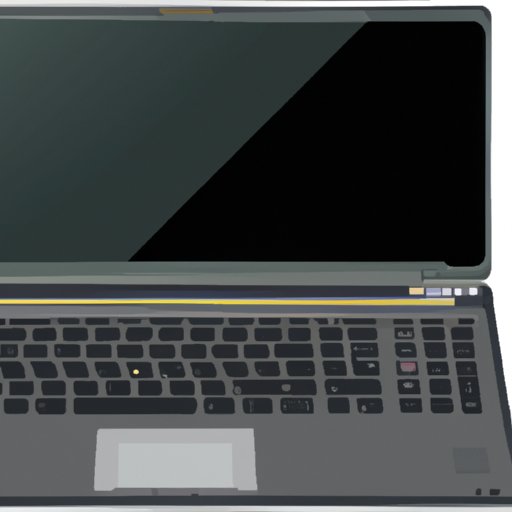Introduction
When buying a laptop, it is important to know what to look for to ensure you get the best value for your money. There are many components to consider, such as the processor, RAM, storage, graphics, connectivity, and screen size. It is also important to consider the battery life and performance. Understanding your needs and budget can help you narrow down your options and research reviews and ratings can provide insight into the quality of the laptop. In this article, we will explore what to look for in a laptop.

Evaluate the Different Components of a Laptop
The processor is the most important component of a laptop. It affects the overall performance and speed of the laptop. When looking for a processor, consider the clock speed, number of cores, and cache size. The higher the clock speed, the faster the processor will run. The more cores a processor has, the better it will be able to multitask. The larger the cache size, the more quickly data can be accessed by the processor.
RAM, or random access memory, is another important component to consider. This is where applications and files are stored while they are being used. The more RAM a laptop has, the better it will be able to handle multiple tasks at once. Look for laptops with at least 8GB of RAM for optimal performance.
Storage is another important factor to consider. Most laptops come with either a hard drive or solid-state drive (SSD). Hard drives are typically larger in capacity but slower than SSDs. SSDs are much faster than hard drives but may have less capacity. Consider how much storage you need and how quickly you want your laptop to perform when choosing between the two.
Graphics are an important component for gaming and other graphics-intensive applications. Dedicated graphics cards are more powerful than integrated graphics cards, but they also consume more power and generate more heat. Consider the type of graphics you need and the cost of the graphics card when making your decision.
Connectivity is also important when choosing a laptop. Look for laptops that offer multiple ports, such as USB, HDMI, and DisplayPort. Wireless connectivity is also important, so make sure the laptop supports Wi-Fi and Bluetooth.
Screen size is also an important consideration. Larger screens are better for watching movies and editing photos, while smaller screens are better for portability. Consider the size of the screen and the resolution when making your decision.
Consider Battery Life and Performance
Battery life is an important factor to consider when buying a laptop. Look for laptops with long battery life so you don’t have to worry about recharging all the time. Also consider the battery performance, which determines how quickly the battery drains. Look for laptops with good battery performance to get the most out of your laptop.

Understand Your Needs and Budget
Before you start shopping for a laptop, take some time to identify what you need from it. Consider the type of activities you plan on using it for and set a budget. This will help you narrow down your options and make it easier to find the right laptop for you.
Research Reviews and Ratings
Once you have identified your needs and set a budget, it is time to start looking at reviews and ratings. Online reviews can provide valuable information about the performance and reliability of different laptops. Manufacturer ratings can also be helpful, as they provide insight into how the laptop was tested and how it performed during testing. Reviews and ratings can help you make an informed decision.

Compare Specifications on Different Models
Once you have narrowed down your options, it is time to compare the specifications on different models. Consider the processor, RAM, storage, graphics, connectivity, and screen size. Compare these features to find the laptop that best fits your needs and budget.
Look for Manufacturer Warranties and Support
When purchasing a laptop, look for a manufacturer warranty and technical support. A warranty will cover any repairs or replacements that may be needed, while technical support can help you troubleshoot any issues that may arise. Both are important factors to consider when buying a laptop.
Conclusion
Buying a laptop is a big investment, so it is important to understand what to look for. Evaluate the processor, RAM, storage, graphics, connectivity, and screen size to find the best laptop for your needs. Consider battery life and performance, as well as researching reviews and ratings. Finally, make sure the laptop comes with a manufacturer warranty and technical support. Following this process will help you find the perfect laptop for you.


